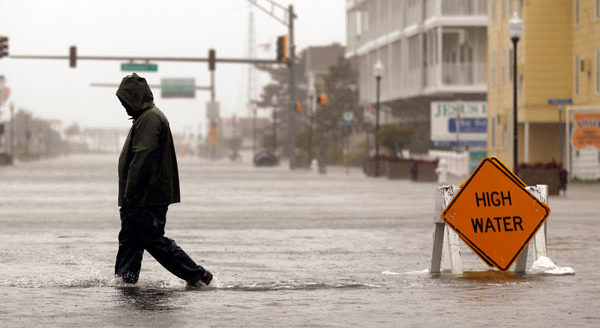So, in the last post, I pointed out the difficult experiences that can result from trauma. Recent research suggests has been illuminating the fact that post traumatic growth, a term coined by Dr. Richard Tedeschi, a psychology professor at University of North Carolina at Charlotte and coauthor of the “Handbook of Post-traumatic Growth”, is also a very real possibility in the wake of trauma and disaster such as Hurricane Sandy. I bring up this point in order to illustrate the notion that personal growth occurs not despite pain, but in fact, because of pain. Were it not for pain in life, little or no growth would likely occur. As I state in the book, people don’t grow because they feel like it, but because their ass is against the wall and they have no choice. Even communities, and governments and governmental policies can be positively impacted by trauma as can be evidenced by occurences in Japan post earthquake and Tsunami.
So what can we possibly take away from Hurricane Sandy, especially those who have lost loved ones, or their homes, possessions, and livelihoods?
Paradoxically, in the wake of loss, we often develop an appreciation for the less material aspects of life, most importantly, our relationships. In the wake of trauma, people often form warmer and more meaningful relationships. People often also report a dramatic re-shifting of personal priorities. They become less focused on work, career, possessions and so on and focus more intently of the more transcendent aspects of life. People often report a greater sense of personal strength, and recognition of new possibilities or paths for one’s life and spiritual development.
To be sure, these experiences don’t always ensue and may take a while to become recognizeable. There are a number of predisposing traits and circumstances that exist that help predict who might more able to “turn lemons into lemonade”. The predisposing factors are myriad and complex and beyond the scope of this discussion. Two factors however clearly stand out. First, one’s ability to grieve predicts adjustment outcome. So the degree to which people allow themselves to consciously experience the many feelings that ensue from trauma and to give expression to those feelings help with long term adjustment. Closely associated with this, is the fact that those with supportive relationships, are more likely to have a platform to assist with the expression of painful feelings and experiences.
From a wider perspective, history bears witness to the fact that many communities and nations have emerged stronger following catastrophy. Japan, England and Germany all strongly arose from the ashes and devastation of WWII. It can be argued that the state of Israel would not have formed were it not for the unfathomable occurrence of the holocaust. Following the space shuttle Challenger disaster, NASA reformed as a stronger and more focused agency. In the wake of the tragedy of 9/11, the United States emerged briefly as a more united nation. Unfortunately, we did not have sufficient wisdom in our leadership to capitalize on that opportunity and instead we succumbed to anger and fear and squandered our precious resources on reactive wars. It is my hope, that in the wake of Sandy, a renewed awareness of the perils of climate change can awaken our leadership and populous to the urgent need to modify our lifestyles and practices if we are to survive as a species. This can only occur if we mindfully experience the pain of Sandy. If we can recognize this as “Fierce Grace”, we can awaken to the lessons that need to be headed. If we lament and avoid the pain, then little will have been learned.
Please post opinions, personal experiences, counter perspectives, and so on.



